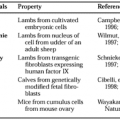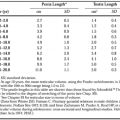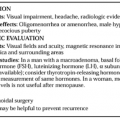THERAPY
Part of “CHAPTER 45 – HYPOTHYROIDISM“
GUIDELINES FOR STANDARD THERAPY
Several pharmaceutical preparations are available for the treatment of hypothyroidism. The careful use of any of these preparations can reverse the hypothyroidism and restore the euthyroid state. Before commencing therapy, it is important to define whether hypothyroidism is caused by thyroid failure or by the much less common failure of TSH secretion because of hypothalamic or pituitary disease. In the latter case, coexisting impairment of adrenocorticotropic hormone secretion may precipitate an adrenal failure that had been satisfactorily tolerated during hypothyroidism. Even when TSH elevation demonstrates hypothyroidism that is due to thyroid failure, it is important to consider coexisting autoimmune disease of the adrenal gland. Treatment of the hypothyroidism alone raises the metabolic rate and the rate of cortisol metabolism and may then “unmask” adrenocortical hormone deficiency. In these settings, cortisol should be administered with the thyroid hormone replacement.
Animal products, such as desiccated thyroid and thyroglobulin, were standard replacement therapy for several decades. These products are being replaced with synthetic preparations of L-thyroxine (L-T4), L-triiodothyronine (L-T3), or medications that combine synthetic T4 and T3. The use of synthetic preparations is recommended because of their stability and because their standardization is by hormone content rather than by iodine content. Among the synthetic products, only L-T4 produces relatively unchanged serum T4 and T3 levels throughout the 24-hour day.35 Because of its small distribution pool in blood, T3 as well as synthetic combinations of T4 and T3 result in a postabsorptive increase in serum T3 to hyperthyroid values. The consequent instability of serum T3 levels in patients treated with T3 does not allow assessment of the thyroidal state by measurement of serum levels of iodothyronine. Thyroid hormone receptors in some tissues (e.g., brain) are occupied by the T3 that is produced within the target tissue from deiodination of T4.36 Because oral T3 would not deliver thyroid hormone to such tissues in a physiologic manner, it is recommended that synthetic L-T4 be used for replacement therapy. One of the well-standardized brands (e.g., Synthroid, Levothroid, Levoxyl) is recommended, because variations in potency have been reported for some generic preparations.37
Stay updated, free articles. Join our Telegram channel

Full access? Get Clinical Tree






